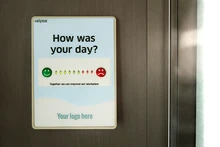
Since not enough people were rallying against the truly simplistic ‘ #quiet everything’ analyst brigade, I’m going to share with you instead, 4 perfectly effective principles to help guide organisational success in 2023 that only those of us at the coalface could source with confidence.
You see, as the multi-industry, fractional HR professional that I am, I’ve experienced it all now over the years. All the way back to post-privatisation enterprises to the flipping of Y2K, to global financial crisis and to the exponential rise of technology on our everyday lives, with all the bean bags and bluster it mustered in the world of work. More recently, I’ve led several clients through the global pandemic, experienced first-hand the influence of the VC/PE industry’s impact on high growth companies, worked at close quarters on the problems of our CARE & Social benefits sectors and stood alongside Ukrainian colleagues that overnight became directly involved with the trauma brought on by the ongoing war there. Ok, that’s enough clickbait.
So as hypergrowth gives way to a deep recession narrative, I’ve come to understand ultimately that the markets we operate in are entirely unpredictable and that our response is to build resilient organisations, capable of both withstanding these events and remaining valuable, in the eyes of those paying for the product or service.
So, having blanked out the unhelpful background noise, let me give you instead 4 sure-fire, essential principles to help you develop your effective people strategy:
Beware lighthouse thinking on the growth agenda
Bust and boom economics shouldn’t necessitate a mirroring in the talent space, where we historically turned the tap on or off on our recruitment efforts. Our current reality is more nuanced, and our approach to talent should reflect that. We continue to hire into scarce, hard-to-fill roles because of both skills and demographic outworkings that have been in the post for many years. We need to fixate on our internally mobile workforce to partly resolve this associated supply and demand mismatch. We need to educate ourselves about the growing liquid workforce emerging and think beyond the slowly decreasing permanent pool with the increasing use of on-demand solutions instead. Oh, and please maintain a principled eye on a) the way you treat your people, if cutting back b) the ongoing commitment to the candidate experience and c) the natural (it seems, sadly) temptation in every downward cycle to cut back on the D&I agenda. Play the long game, as the market will turn and people will remember.
Declutter the pandemic approach to working
Similar to the infantile hashtag debate, too many employers are being caught up in a simplistic and noisy battle between the advocates of the office (Real estate and Investment houses) and those in the Remote corner (Collaboration Tech providers). The reality is that we are working our way through the death of the old comforting rituals of the command-and-control era on one hand and seeing a new established way of working being shaped slowly in front of our eyes, on the other. We haven’t landed on an established norm (even if that’s a thing) and bottom line is that any relevant solution should be dictated by the dynamic context of the business. I’ve seen many employers with an abundance of pandemic-created daily meetings and rituals that need revisited as the story develops and many are now decluttering with both better productivity and value-creating habits in mind. The principle here is embracing the problem through informed trial and error, experimentation, and collective agreement that any solutions around meetings, technology and execution should be at the behest of the value-creating agenda and not the whim of our most insecure of managers. More pragmatism, less dogma please.
Continue cleansing the performative, unproductive rituals
If tackling the problem above has whetted your appetite, then there are viable areas in business to explore for old rituals we should be consigning to the museum. Too many HR teams have cluttered their organisational landscape with cookie cutter rituals that add little to no value over a period of time. Over the last few years, I’ve taken organisations through the democratic process of replacing the toxic, backward-looking, annual review to more continuous, forward-looking coaching conversations, curated principled team agreements instead of top-down, HR compliant policy documents and switched off hierarchical organisation chart obsessions by introducing the value of network, density, and relationship as true value creators. In this domain comes the ever-increasing use of evolving workplace technology, such as ONA, as simple table stakes for all businesses in today’s competitive market. Use Tech and positive rituals for continued success and if it doesn’t add value, bin it. No more sacred cows.
Take a balanced approach to compensation and benefits
Finally, we need to talk about money. The recessionary narrative means that ‘cash is king’ in 2023 and there is a demonstrable downward pressure on one of the biggest corporate outlays of the year in terms of the salary bill, despite the fact that we can also see clear and obvious awards being necessary for certain industries to meet this cost-of-living crisis. However, one of the toughest principled conversations I’m having (and the salary debate is also a nuanced one but for another day), in various boardrooms, is asking them to reflect carefully on any desire to trim back on the pandemic focus on employee benefits. Since then, in a post-COVID19 world where retention was key in the face of resignation spikes, has now codified such perks as table stakes. Remove at your peril but as good a time as any to review and reimagine the value you get as a business in your entire salary, bonus, and benefits budget.
As with all of these, organisational context is always key, but principles trump strict rules and orthodoxies, every day of the week. The sooner we reject simple hashtag-led answers and embrace the complexity of our problem, the sooner we can focus on enduring solutions that create resilience no matter what the external context throws at us in the coming years.
Now, the second most effective way to improve how your organisation deals with today’s complexity is to hire me on a fractional basis, gaining the unique advantage of a seasoned HR practitioner on a part-time or ad hoc basis, to help you develop an effective principle-led People & Talent strategy.
Find out more at www.barryflack.co.uk or get in touch directly via me@barryflack.co.uk for an initial conversation.












